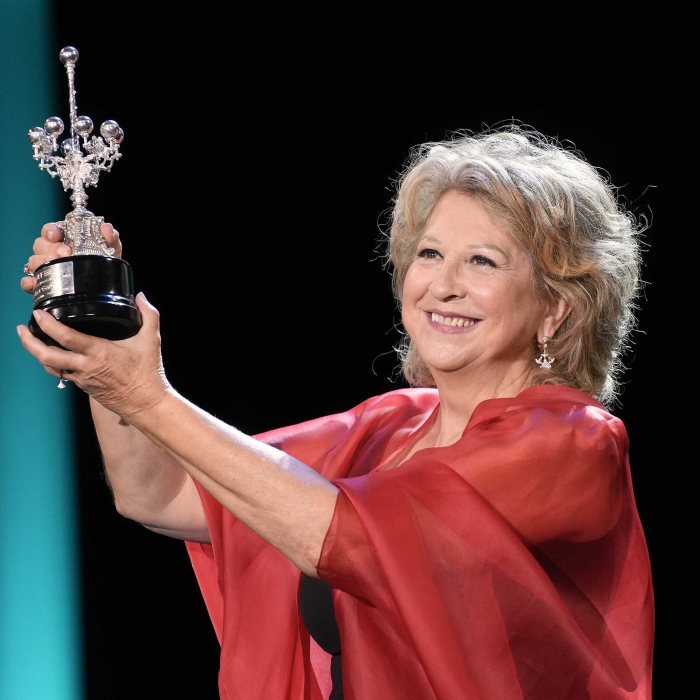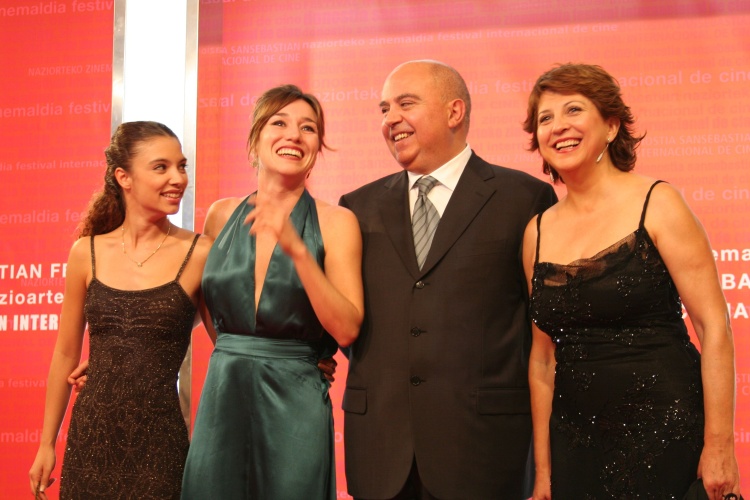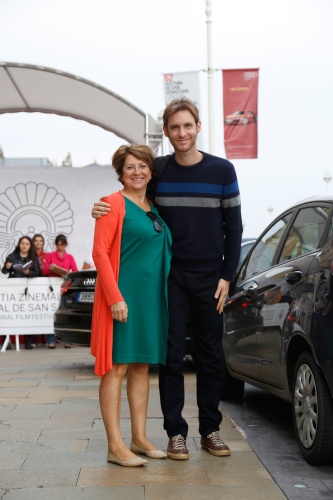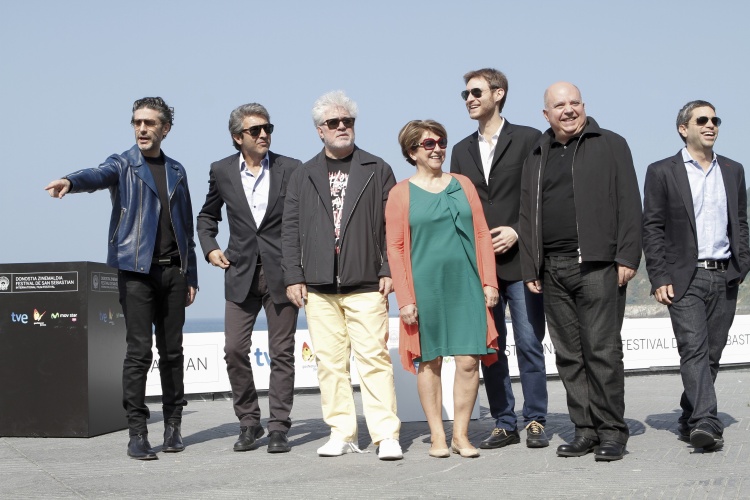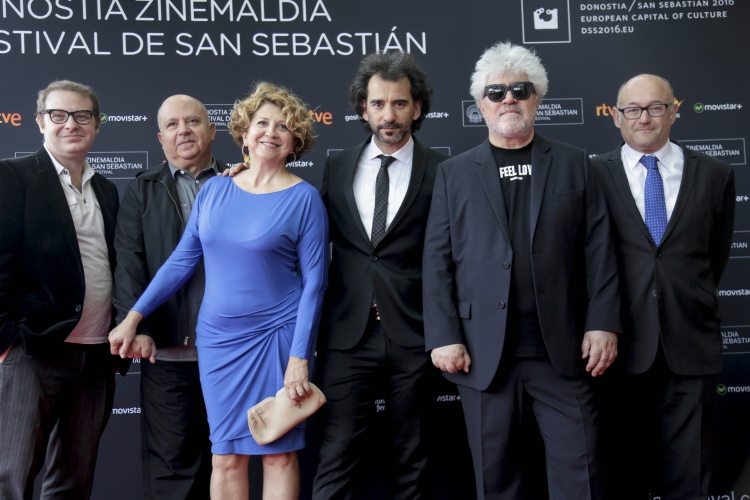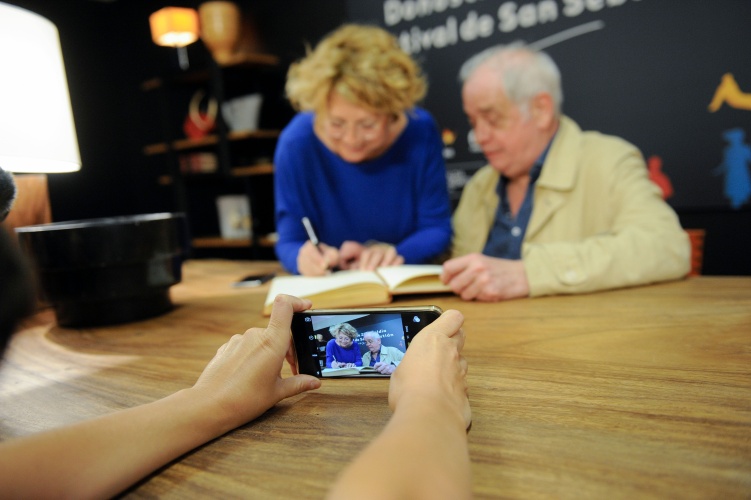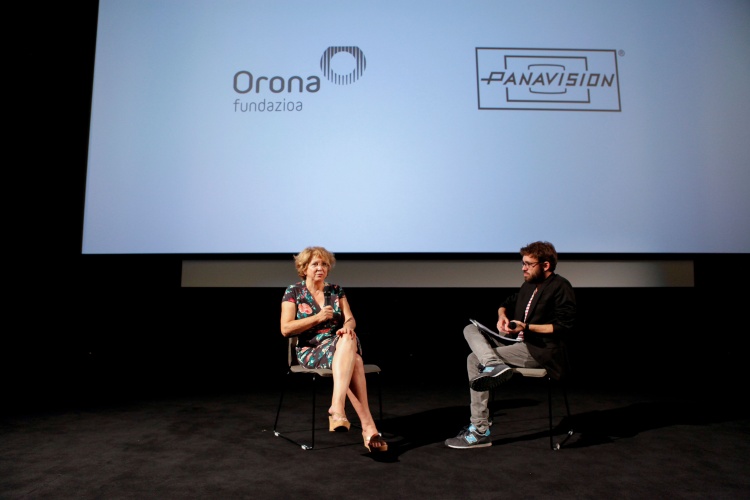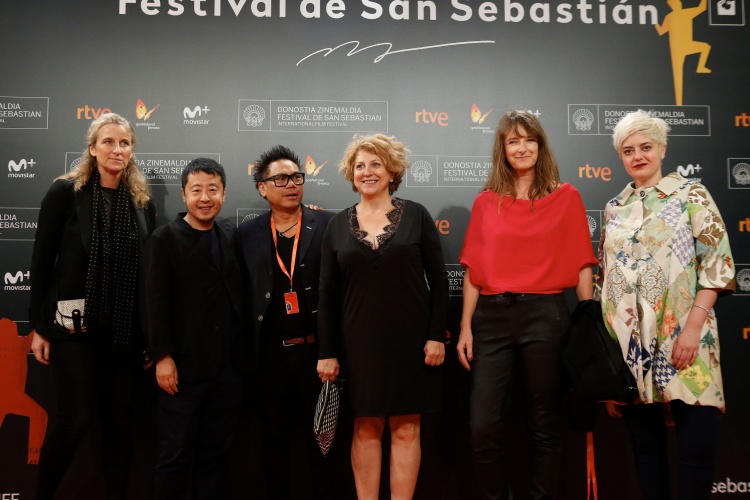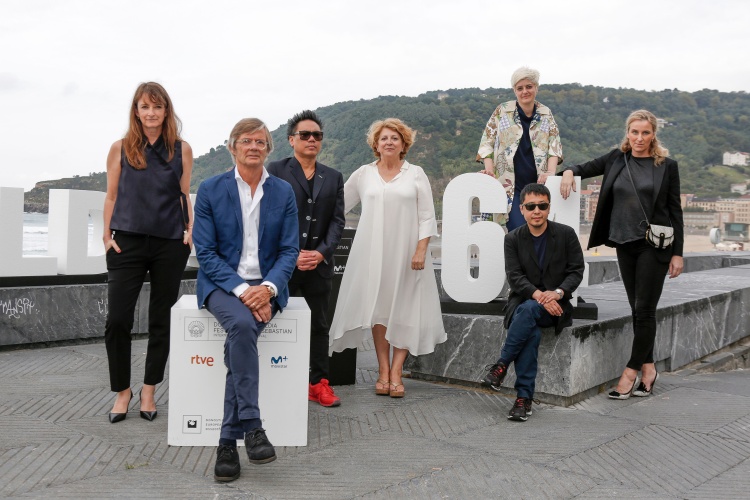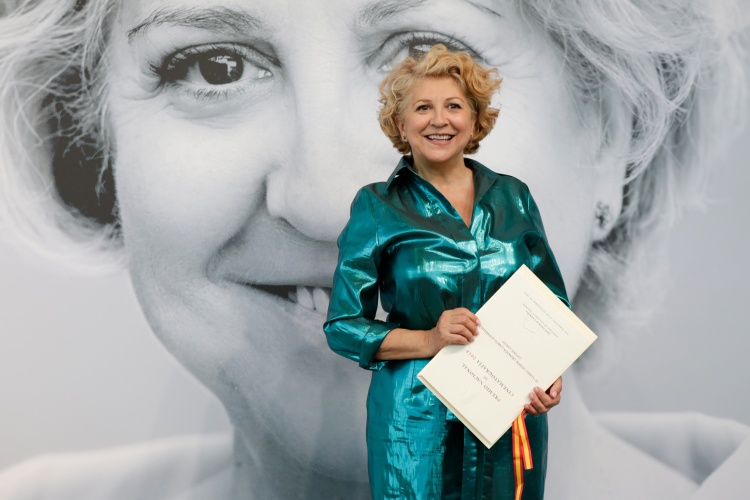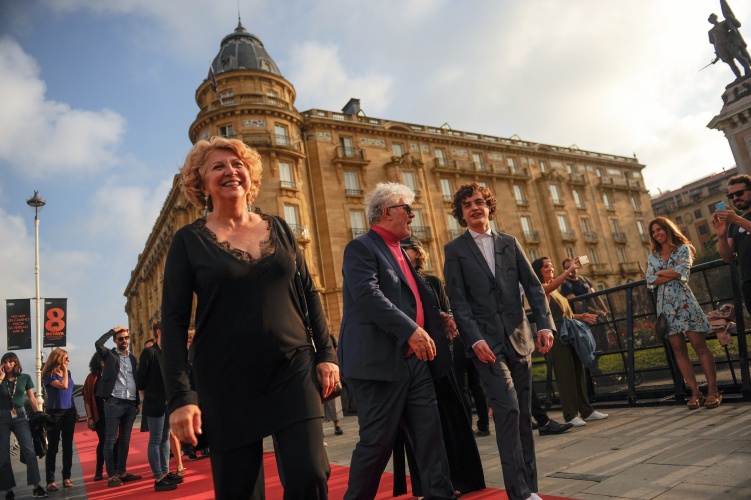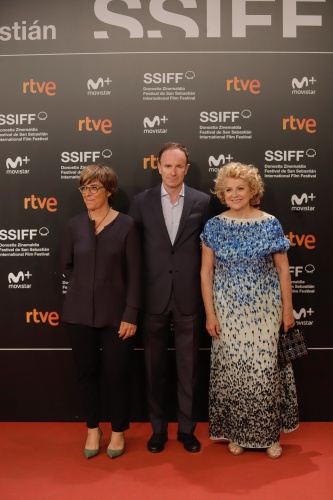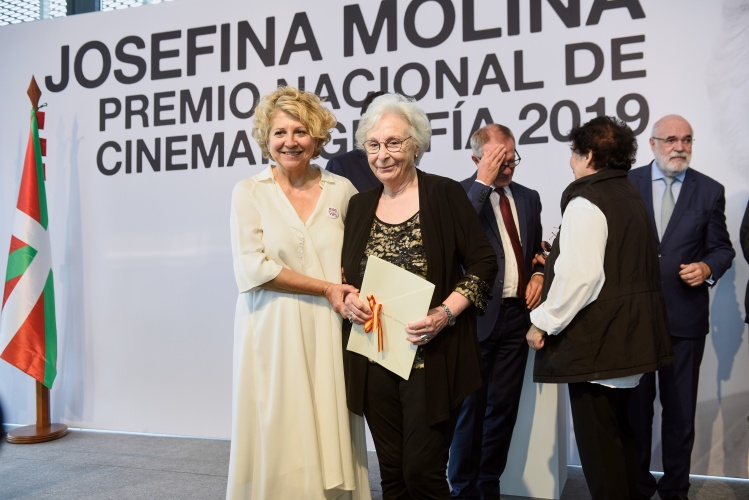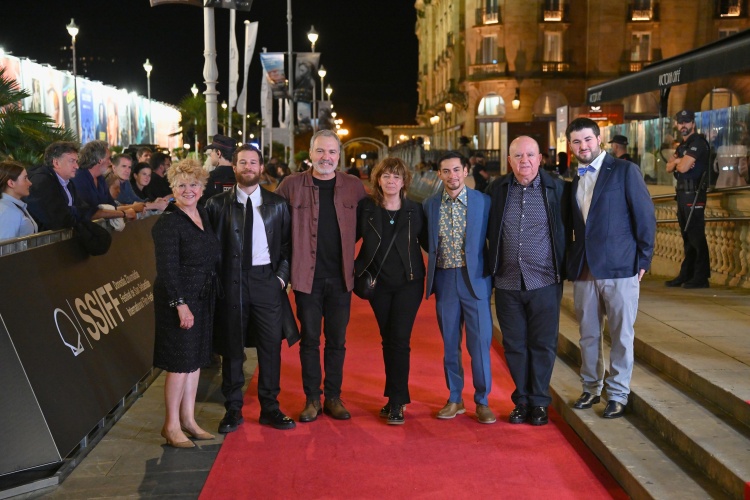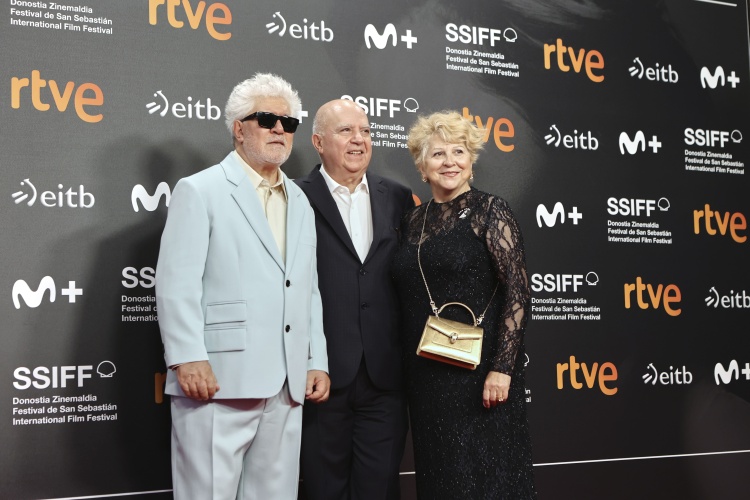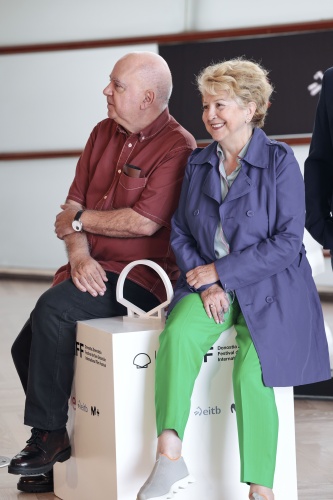Esther García, production independence, derring-do and excellence
Constantly driven by her identifying features of independence, derring-do and excellence, Esther García (Cedillo de la Torre, Segovia, 1956) has worked on more than a hundred productions. In 1986 she joined the El Deseo production company created a year earlier by siblings Pedro and Agustín Almodóvar, having previously participated as a secretary, production assistant and manager on films including Pim, pam, pum… ¡Fuego! (Pedro Olea, 1975), which competed in San Sebastián’s Official Selection; Siete chicas peligrosas (Pedro Lazaga, 1979), Sé infiel y no mires con quién (Fernando Trueba, 1985), El año de las luces (Fernando Trueba, 1986), La vida alegre (Fernando Colomo, 1987) and El juego más divertido (Emilio Martínez Lázaro, 1988). She has also had a hand in series such as Curro Jiménez, directed amongst others by Mario Camus, Pilar Miró and the Romero Marchent brothers, and Los pazos de Ulloa (Gonzalo Suárez), having similarly worked with Mariano Ozores in a large body of his work.

However, since her first collaboration with Pedro Almodóvar on Matador (1986) she has become an essential piece in all subsequent projects by the director from La Mancha, who also received the Donostia Award at last year’s San Sebastián Festival. Her name is mentioned in association with those of the Almodóvar siblings on films including La ley del deseo / The Law of Desire (1987), from which the production company takes its name, and Mujeres al borde de un ataque de nervios / Women on the Verge of a Nervous Breakdown (1988), a contender for the Best Foreign Language Film Academy Award, an accolade won 10 years later by Todo sobre mi madre / All About My Mother (1999). As well as El flor de mi secreto / The Flower of My Secret (1995), screened out of competition in San Sebastián’s Official Selection, other joint projects are Hable con ella / Talk to Her (2002), for which Pedro Almodóvar bagged the Best Original Screenplay Academy Award; La mala educación / Bad Education (2004), which opened Cannes; and Volver (2006), winner at the French fest of best screenplay and best actress for all of the women in the cast before going on to harvest almost a hundred awards, including the FIPRESCI prize in San Sebastián.

They returned to Cannes with Los abrazos rotos / Broken Embraces (2009), La piel que habito / The Skin I Live In (2011), Julieta (2016) and Dolor y gloria / Pain and Glory (2019), for which Antonio Banderas landed the Best Actor Award. Penélope Cruz won best actress for Madres paralelas / Parallel Mothers (2021) in Venice, where La habitación de al lado / The Room Next Door (2024) carried off the Italian festival’s top award, the Golden Lion. Posterior to said film, programmed as the Donostia Award Screenings to follow last year’s gala dedicated to Almodóvar, is Amarga navidad, currently in development and which will be the twentieth full-length movie produced by Esther García for Pedro Almodóvar. She has also produced his short films La voz humana / The Human Voice (2020) and Extraña forma de vida / Strange Way of Life (2023).

El Deseo has always been known for giving a chance to moviemakers who were up and coming in their day, such as Álex de la Iglesia, Isabel Coixet, Daniel Calparsoro, Monica Laguna, Dunia Ayaso and Félix Sabroso and Belén Macías. The company has also backed the careers of big names in the world of Latin American film, like Guillermo del Toro, Lucrecia Martel, Damián Szifron, Pablo Trapero, Julia Solomonoff, Luis Ortega, Andrés Wood and Miguel Gonçalves Mendes. Outstanding amongst its recent productions is Sirāt (2025), for which Oliver Laxe garnered the Jury Prize at Cannes.

Amongst the myriad awards received by García are the National Cinematography Award, which she received in San Sebastián in 2018, the Silver Fotogramas in 2019 and six Goya Awards, three as the production director for Acción mutante / Mutant Action (Álex de la Iglesia, 1993), Todo sobre mi madre / All About My Mother (Pedro Almodóvar, 1999) and La vida secreta de las palabras / The Secret Life of Words (Isabel Coixet, 2005), and three as a producer on Volver (Pedro Almodóvar, 2006), Relatos salvajes / Wild Tales (Damián Szifron, 2014) and Dolor y gloria / Pain and Glory (Pedro Almodóvar, 2019).

In addition, she has made a name for herself as a staunch feminist: a member of CIMA (Association of Women Filmmakers and Audiovisual Media), she joined a large group of Spanish women producers to promote the joint documentary Yo decido. El tren de la libertad (Made in Spain, 2014) also having produced, amongst others, non-fictions such as Con la pata quebrada / Barefoot and in the Kitchen (Made in Spain, 2013) and Manda huevos (Official Selection Special Screenings, 2016), both directed by Diego Galán, as well as El silencio de los otros (2018), by Almudena Carracedo and Robert Bahar.

